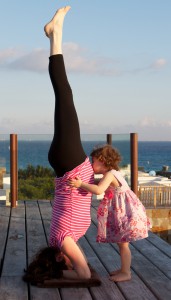 I’ve been on board with limiting praise for my kids ever since reading Unconditional Parenting by Alfie Kohn. I understood the negative impacts of praise in theory, I learned how to limit praise in parenting and I was happy with my decision.
I’ve been on board with limiting praise for my kids ever since reading Unconditional Parenting by Alfie Kohn. I understood the negative impacts of praise in theory, I learned how to limit praise in parenting and I was happy with my decision.
But I didn’t understand the internal impact of praise until recently.
The Back Story
My good friend is a yoga teacher, and while she’s relatively new at it, she’s also a total rockstar who’s managed to pack her schedule with enough yoga classes to more than compensate for the corporate job she left behind.
Recently she received feedback on her teaching from the owner of one of the studios where she works. We sat down to process the feedback, which shook her confidence a bit.
One of the recommendations was to stop praising — not that she does it very often. She asked for my thoughts on the matter.
As a coach, I know that praise moves us from a place of unlimited support to a place of judgement. By saying something is good or bad, I limit my clients’ experience so I’ve learned to leave praise out.
As a parent, I also know that praise takes a child’s focus off of himself and directs it to praise-seeking activities.
But as a yoga practitioner? I actually enjoy having the occasional “good job” or “nice pose” thrown in there. It gives me a lift and makes me feel good.
I shared my feedback and trusted my friend to process the issue on her own.
My Experience of Nonjudgement
At my friend’s next class — I attend one of her classes weekly whenever possible — I noticed that she didn’t praise. Not once.
And I noticed a shift within myself. As I adjusted and knew not to expect the praise, my attention began to focus more on my internal experience of my yoga practice.
What I began to realize was that those “good jobs” gave me a momentary high, but it was the kind that fizzles on the next pose when I wonder why I’m not receiving more of them. Am I not as good at this one as I was at the earlier one? Is someone else better than me?
In the absence of praise, I was able to understand the freedom of not being judged as good or bad. An authority person’s feedback, be they a teacher or parent, has a gravitational draw that brings our attention out of our own experience and focuses it on their assessment of us. The ego then kicks into high gear, measuring us and comparing us to others.
It’s taken me years of practice to learn to keep my eyes on my own mat. But in the process of eliminating praise, my friend helped me bring my full attention to my own experience.
The Implications
By focusing on my own experience, I suddenly am liberated to be present with my practice, noticing any tension or emotions arising that need my attention. I am freed by being in the present moment by feeling connected to everything that is happening, in exactly the moment in which it happens.
By stepping into my ego, which I experientially know is activated by praise, I step into a state of lack, of wanting or needing attention in order to be okay. This is what I call the “gimmes” — that place where you think you need stuff in order to be okay, be it praise or things. This gimme state just feeds on itself, creating a gimme monster.
I don’t want to disservice my children by shifting them into this mindset of lack.
